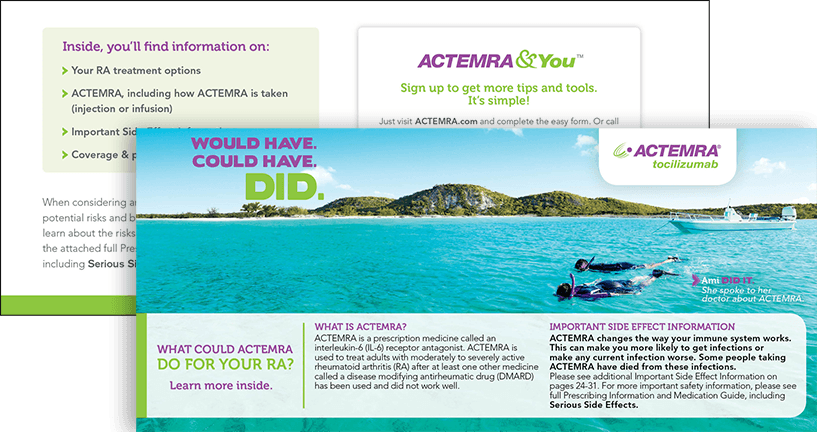When Actemra, a new drug for rheumatoid arthritis, arrived on the market, patients and doctors alike were excited. You see, treatments for the disease (which affects about 1.5 million Americans) can have terrifying side effects and Actemra wasn’t associated with any of the regular cast of characters (heart attacks, heart failure, or life-threatening lung complications).1
However, hundreds of patients who took Actemra have indeed died from those exact problems and much more have suffered a great deal. In fact, there is clear evidence that the risks of heart attacks, strokes, heart failure, and other conditions were as high or higher for patients who took Actemra than for patients who took a competing drug.
The difference? Most of those medications warn about those risks on their labels. But Actemra does not:2
- Infomation obtained through the Freedom of Information Act found a doctor who said no factor other than the drug could have explained a 73-year-old man’s fatal brain bleed two days after receiving an intravenous Actemra treatment.
- Still another said of a 62-year-old German woman’s heart attack in 2014: “The company assessed fatal myocardial infarction as related to (Actemra).” That company was Roche, Actemra’s manufacturer.
And yet, in spite of that, neither Roche nor the FDA has moved to change Actemra’s label so that patients and doctors are aware of the potential risks. This failure to warn the public once again highlights the FDA’s “inability to adequately scrutinize the safety of drugs after they have been approved, and to act promptly when potential danger signs appear.” 3
RELATED ARTICLES:
- Unless You’d Consider Heroin, Don’t Take This Prescription Drug
- FBI Warns Against This Deadly Prescription Drug Millions Take
Dr. Vinay Prasad, an oncologist and medical ethicist at the Oregon Health and Science University, said, “The system is broken, and all the financial incentives are lined up to keep it broken.”
And that broken system, which has cost $207 million since 2009, is called Sentinel. It’s supposed to scour insurance company records for serious side effects of recently approved drugs, however, it misses most data on deaths related to prescription drugs. (Taken intravenously or by injection, Actemra has been used by more than 760,000 patients globally and generated sales of $1.7 billion last year, making it Roche’s fifth highest-grossing drug.4)
“Sentinel’s track record is all the more worrisome amid the rise of an approve-first, monitor-later philosophy in Washington. The recently passed 21st Century Cures Act is intended to speed federal sign-off on new medicines by streamlining pre-approval reviews of drug safety and efficacy. The Trump administration and prominent members of Congress are itching to push drugs through the regulatory pipeline faster than ever, then hope to catch any missed safety problems after they’re on the market.
The FDA declined to comment about Actemra. In a written statement, a spokeswoman said the agency ‘continually monitors postmarketing safety of approved drug products and remains committed to informing the public in a timely manner when the FDA identifies safety issues.’”
This seems to be a repeat of the trouble with Vioxx, which was pulled from the market after it was implicated in tens of thousands of heart attack deaths. And that’s part of the problem, like Vioxx, Actemra is just as dangerous as any other arthritis drugs, but patients and doctors are misled into believing it might be safer because frequently reported, serious problems aren’t noted on its warning label. (Other very common complaints about the drug are memory lapses, mental sluggishness, tachycardia, small strokes, tremors and hair loss- and those are the less scary ones! More serious conditions experienced were interstitial lung disease, heart attacks, strokes, heart failure, and pancreatitis.)
RELATED ARTICLE:
Although federal law requires companies to ensure accurate labeling and the FDA can force changes when serious hazards come to light after approval, an FDA spokesperson said the agency had “never fined a company for labeling failures.” 5 If people die and it doesn’t force their hand- nothing will.
And that’s perhaps due to the revolving door culture that exists between the FDA and Big Pharma. As scientists regularly move to more lucrative jobs with the companies they once regulated, the lines can get a bit blurry.
Prasad said, “So much of the data is in the hands of people who are conflicted. We have to ask ourselves if the current system is in the interests of public health.”
We couldn’t have said it better ourselves.












